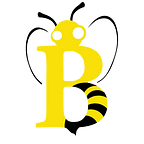Only ratiocination can save your families from coronavirus 🦠😷
Our Buzzword for this issue is “ratiocination”. This tongue-twisty term describes forming judgments via logic. Basically, critical thinking. You probably dust off your ratiocination when you need to juggle bill payments, argue with the in-laws, or plan out an overseas vacation (oops, touchy subject). Critical thinking keeps you alive! But have you ever thought about how your ratiocination can help everyone on earth? We’ll show you how, but to unlock that potential we have to understand our full capability for logic. Consider this explanation from Huzafa Hyde, our Spelling Bee Kid from London, Ontario:
“Critical thinking is the ability to:
- Understand and create logical connections
- Identify and analyze argument and opinions
- Deduce mistakes in reasoning
- Solve problems in an organized way
- Identify the importance of certain ideas
- Reflect on the justification of one’s own beliefs and morals.”
Obviously we’re able to process information and follow logic to arrive at conclusions. My hamster can do that. The real underrated part is us humans can decide for ourselves which information is trustworthy enough to factor into our conclusions. That’s a super crucial process that can drastically change the decisions we make! And for every one of us, ratiocination is only getting more mandatory.
We live in an era of practically limitless information of varying credibility. We’re presented with so much news. When was the last time you paused and considered: does this news even make sense? Who’s presenting it and who does it benefit? Here’s something even more tricky: opinions — the internet is full of ‘em. Has the commenter considered multiple sides of the story?
Here’s where things get real. Everyone’s posting about rules and recommendations regarding COVID-19, but where did they get their information from? It can be hard to tell. On the other hand, authorities like the World Health Organization have publicly tracked their consultations with international experts who actually run tests and collect data. Transparency is a good sign that information can be trusted.
During the COVID-19 pandemic, your own neighbours are taking different approaches. Perhaps some feel safe going to Walmart without a mask as long as they socially distance. Others are avoiding humans altogether. What’s the best decision for you? Maybe you’re young (or at least feel young), healthy, and live with other people who are pretty well off. Summer plans without worries, right? Here’s some advice from Enya Hubers, our Spelling Bee Kid from Hamilton, Ontario:
“It is also important to look at both sides of an argument. If you can think critically you can empathize with other people better. Critically thinking is important for everything from deciding what shoes to wear, to deciding who the leader of your country should be.”
In our global battle with COVID-19, we’re faced with stay-at-home orders, social distancing, the seemingly forgettable reminder to use payment cards instead of cash, and so many other behavioural changes that might not seem like the right decision for us. We tend to forget that in houses right beside us, people have health conditions or live with their elders. Staff in the businesses we visit, they’re humans too. Each decision we make affects our lives. And each decision we make also affects the lives of those around us. Ratiocination means we pause and consider all things— including all people — and that’s the only way we make decisions for the greater good.
🐝 Thanks! You’ve just read Buzzword, where Spelling Bee of Canada spotlights rare words that widen your perspective. For more fun language arts reads and videos, subscribe to Buzz News!
This post was written by Fran Mbadiwe, an editor who runs SBOC’s Buzz News. Apart from that, he’s probably journaling.
